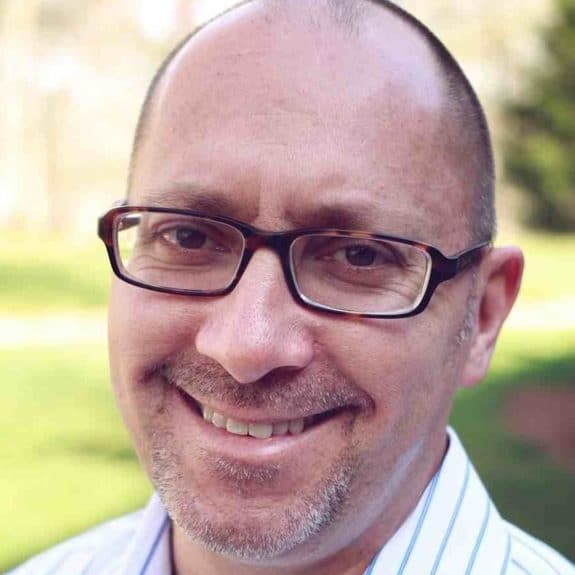DR Care ministry will link adoptive churches with needy churches and families after initial phase of disaster relief.
Arguably, Southern Baptists’ greatest public witness has been the yellow-shirted disaster relief volunteers who flock to civil emergencies armed with mobile kitchens, shower units, cleaning supplies, chainsaws, and hope. In the days after 9/11 and Katrina, these very special forces were everywhere that helping hands were needed.
But long after the waves of volunteers from church groups and other non-profits go home, those most affected by disasters are often left to tend their remaining wounds alone or nearly so, with local churches doing their best to offer comfort and encouragement but frequently stretched in their manpower.
A new disaster relief ministry of the Southern Baptists of Texas Convention called DR Care (Disaster Relief Church Adoption & Restoration Effort) aims at long-term restoration of buildings and souls long after the last first responders leave.
It’s a collaboration between an adoptive church, a church in a disaster area, and families in need, explained Rick Head, DR Care facilitator. So far four adoptive churches have been matched with four families in the Bastrop area east of Austin, where wildfires last September destroyed more than 1,600 homes and thousands of acres of timber and other vegetation.
“This ministry will be an extension of the first-response DR volunteers,” Head said. “When you say adoption, you really signify a longer-term commitment to build relationships with the adopting churches, and the churches and families in need. We want those families that have been affected to build relationships with those adoptive churches.
“We want to help the people not only with their physical needs but also with their spiritual and emotional needs, to try and laugh and cry with them, to pray with them, to share the gospel with them, and to build relationships that really will hopefully last much longer than the brief time that they are going to be able to spend with them.”
Once a church commits to adopt a family (or another church reeling from disaster), a local pastor will assist in the process and begin building a relationship with the family alongside the adoptive church.
“And once the adoptive church begins to scale back from its work, the local church continues that restoration process on the spiritual and emotional ends,” Head explained.
One recent DR Care collaboration occurred between Highland Park Baptist Church in Kilgore—the adoptive church—and Primera Iglesia Bautista in Bastrop, which had been ministering to a 58-year-old single woman burned out of her small, rural home by the Bastrop wildfires last year.
Riley Pippen, pastor of Highland Park Baptist Church in Kilgore, said he had taken the men of his church on a mission trip annually, and in hearing about the needs and in speaking with Head, the group was led to the Bastrop project.
In July, Pippen took 16 of his men to Bastrop to frame a 14-by-40-foot cottage for the woman, who insisted on a simple, almost primitive design without air conditioning and only a large ceiling exhaust fan to cool it. Pippen said the group tried to talk her into air conditioning but she refused. Not wanting to push too hard, he said the group relented to her wishes.
“We could have done more and would have done more, but she has lived like that most of her life and she is not used to someone else doing things for her,” he explained.
Pippen said the woman was overwhelmed by the group’s efforts. He described her as a very giving person but seemingly leery of churches.
Four of the 16 men who went were first-timers on a mission trip. Fighting through several days of temperatures of 108 degrees, the work is a bonding experience for the men, who bring that unity back to the local church, Pippen said.
Presented with an opportunity to minister in Utah or in Bastrop, the men chose Bastrop because the need seemed more urgent.
“They get a sense of how God is moving us and directing their work,” Pippen explained. “They realize they had a part in fulfilling God’s work. Their interest is not just for that one week; it continues on.”
Harold Welch, pastor of Primera Iglesia, an English-speaking congregation of mostly third- and fourth-generation Hispanics, said he is continuing to pray for the woman’s spiritual state and is continuing to see that her needs are met.
“She is very sensitive to the fact that God is at work through these volunteers,” he added.
“We continue to stand with her and continue to do the things God wants done, little things like buying her a staple gun. I told her it was her first house-warming gift,” he said, explaining that she is a very hands-on person.
He said three other Bastrop-area families have also been assessed and are being helped or awaiting help from three other adoptive churches.
“We do follow up to see how these families carry on with their lives, to talk with them and pray with them. When churches come to minister in such a hands-on way, that’s more names where we can go and reach out to them. Most people are still very receptive to the gospel, after the fires.”
“As the Lord opens the doors to do it, we will continue to minister to folks,” Welch said. “I’m glad churches have come along and helped us. It’s been a blessing to see.”
Head added: “We are looking for a deeper commitment and relationship. When you say adopt, it is more than that. They are going to have the opportunity to share the gospel with them and laugh and cry, to hold their hand and help with whatever is necessary in that restoration process.”
For more information on the DR Care ministry call the SBTC Disaster Relief office toll free at 877-953-7282 (SBTC).














